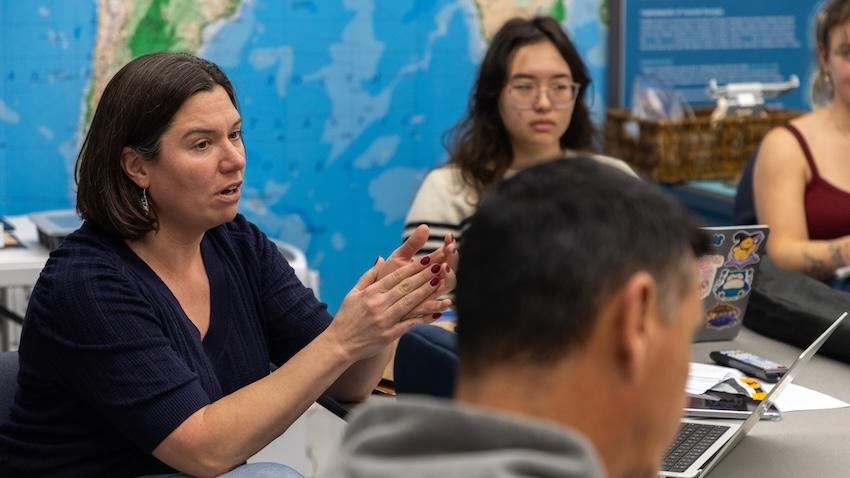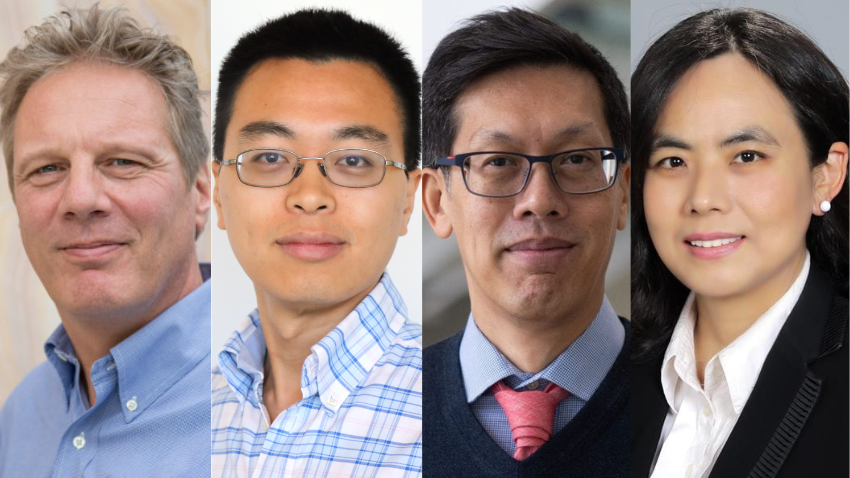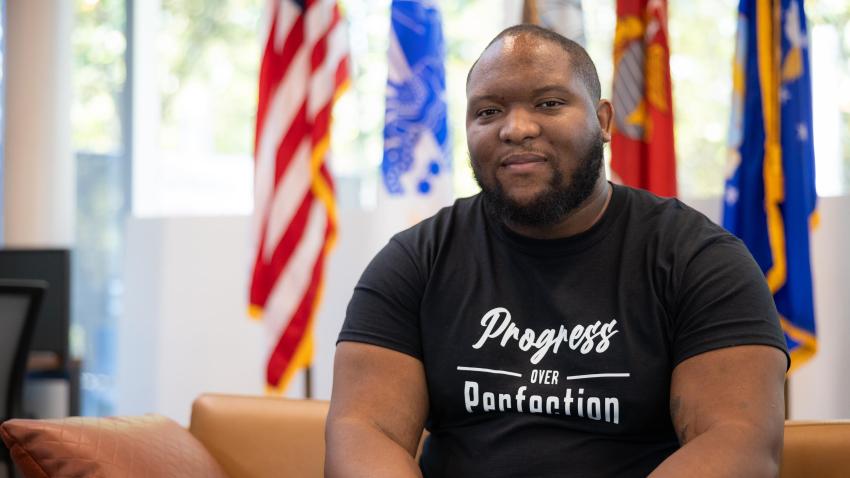
Veterans Day: Celebrating a Former Marine’s Journey to Pursue Cybersecurity
Because computer science (CS) is required for every Georgia Tech undergraduate, students from all majors pass through the School of Computing Instruction (SCI) every year. Among the computer engineering majors this semester is U.S. Marine Corps veteran James Baker, who is pursuing his passion for cybersecurity.
Born and raised in Atlanta, Baker attended Benjamin E. Mays High School and lived here until he joined the service.
From there, his journey to Georgia Tech required hard work and determination. After serving as an enlisted combat engineer in the Marine Corps for over five years, he's now juggling a job and family while working toward his degree.
Military Service and the Call to be an Engineer
In addition to his primary responsibilities as a combat engineer, Baker worked alongside utilities engineers in the service.
“I’ve always wanted to be an engineer. It’s what I’ve wanted to do since I was a little kid,” Baker said. “I like computers and figuring out how to do stuff with them, so I put the two together.”
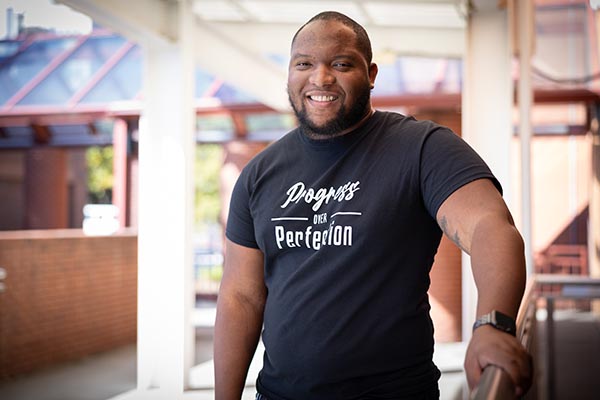
(Photos by: Kevin Beasley/ College of Computing)
Although his path to cybersecurity and privacy at Georgia Tech wasn’t straightforward, his passion for engineering never waned. Baker says his interest was sparked by the desire to protect individuals and their information from online threats, as he had witnessed family members falling victim to scams.
“I had such a roundabout way of getting back into the whole thing because I got out of the military, I worked at the airport, and then I started working with the Department of Homeland Security. Somewhere along the way, I decided to try to get back into school,” he said.
The Threads curriculum pathway at Georgia Tech allowed Baker to personalize coursework based on his interests in hardware and cybersecurity and privacy.
The College of Computing developed and introduced the Threads CS curriculum in 2006. It allows students to combine regular CS instruction with classes related to particular application areas.
“It made more sense for me to pick the threads,” Baker said. “It gives you more focus and direction into what you want to do.“
Community at Georgia Tech
One crucial aspect of Baker’s journey at Georgia Tech has been his connection with lecturers and fellow veterans. Baker recalls receiving help in SCI Associate Chair Mary Hudachek-Buswell’s CS1332 class.
“I needed a little extra help, and she was great. I also had a specific teaching assistant who would help me. It wasn’t like I didn’t understand it; it just took a bit more,” Baker said.
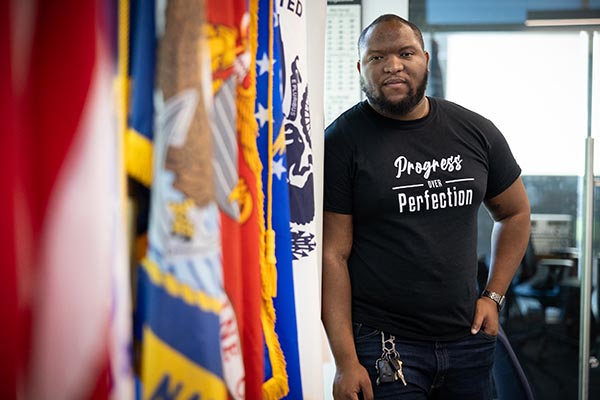
He also met other veterans in the class and at Georgia Tech’s Veterans Resource Center. He says connecting with other veterans and attending events has helped him find a community of students experiencing the same challenges.
“It helps to find other people. You see each other, speak, and realize other people also came from doing completely different things and are now in school,” he said.
Family and the Future
Some challenges on Baker’s academic journey include managing work and family. He says time management is essential with kids active in football and cheerleading. He also says in-person classes are his preference, as focusing on lectures without distractions is easier.
Baker says his family is also what keeps him focused.
“If it was just me, I could just work my job, and I’d be fine and get to school when I get to it. But I want to finish and be in my career before they’re older,” he said.
He’s seeking a cybersecurity and privacy internship to further explore the field. Baker says he may not be a traditional student, but that’s not stopping him.
“You’re not going to tell me I can’t do it because of my situation.”

